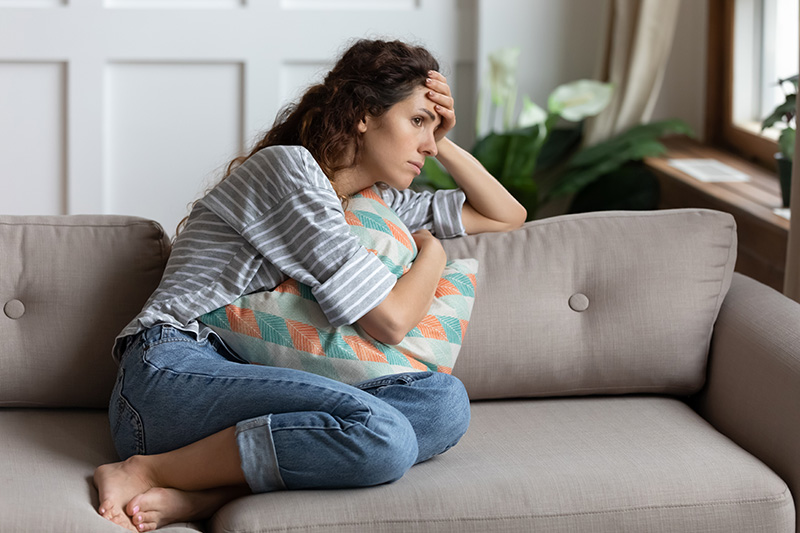Is bipolar disorder more common in women? It is not uncommon for women to struggle with depression more than men, and in some cases, that depression is a misdiagnosis, representing a more serious bipolar disorder. The reason for the confusion about bipolar disorder rates in men versus women and the misdiagnosis rates in women, in particular, is that the symptoms of bipolar disorder tend to mimic depression in women more than in men.
Bipolar Disorders
According to the DSM, there are several types of bipolar disorders, the three biggest of which include the following:
- Bipolar I: This is manifested by a combination of manic and possible depressive episodes.
- Bipolar II: This is manifested by depressive and possible hypomanic episodes, but no manic episodes. Hypomanic episodes are less severe than manic episodes.
- Cyclothymic Disorder: This is manifested by hypomanic and depressive symptoms, both of which are less severe than bipolar II.
So, is bipolar disorder more common in women? The answer lies in which of these bipolar disorder types you are looking at.
Is Bipolar Disorder More Common in Women? Prevalence
The DSM has found that for bipolar 1, the 12-month prevalence was 1.5% on average. There was no significant difference between men (1.6%) and women (1.5%). For this type, men of course had a statistically higher rate than women although it was not a significant rate. For bipolar 1 the lifetime prevalence is the same for men versus women.
The DSM has found that bipolar II is more common in women than it is in men. The cycles that happen present with symptoms more severe in women than in men. Moreover, it tends to develop later in life for women than it does for men.
The DSM has also found that for cyclothymic disorder, rates are equal in men and women, although it is more likely for women to get help than men.
Co-Occurring Disorders in Women
Women who struggle with bipolar disorder are more likely than men to develop secondary mental and physical health issues, primarily depression, alcohol abuse, thyroid disease, and obesity.
The co-occurring symptoms are often the result of self-medication.
Severity of Symptoms for Women
As mentioned, in cases of bipolar disorder, whether or not it occurs more often in women than men, the episodes and their corresponding symptoms are often more severe in women.
This is often attributed to changing hormones in women, which means that bipolar disorder episodes can present with more severe symptoms compared to men when women go through changes due to menstruation, pregnancy, or menopause.
Women are also more likely to have severe symptoms if they have a history of depressive episodes. Those with a history of depressive episodes experience higher risks of things like postpartum depression or severe bipolar disorder episodes after giving birth.
Getting Care for Bipolar Disorder at Casa Serena
Given the prevalence of bipolar disorder in women, it’s important to find the right type of personalized women’s inpatient treatment. With Casa Serena Treatment Programs For Women, you can participate in residential or outpatient programs that are led by women for women.
Our gender-specific programs create a safe and loving space for women to meet their needs, with a communal program designed to help everyone work together. This programming includes therapies like trauma treatment, a mental wellness program, garden therapy, and Tai chi.
For over 65 years, this non-profit facility has provided clients with essential life skills, such as safety, healing, peer support, and growth. We understand that women struggling with bipolar disorder might feel uncomfortable seeking help, especially in programs run by men or occupied by male clients. Moreover, women might feel unsafe reaching out for help when they struggle with a co-occurring substance abuse problem.
But we work hard to make all women feel seen, heard, and understood, getting the care they need and a judgment free space.
Is bipolar disorder more common in women? Some types of bipolar disorders have been statistically more common in women than men, but no matter which type you have, you deserve a treatment program that helps you manage your symptoms instead of letting them manage you.
Call us today at (866) 590-8601 to learn more about how our program can help you with your bipolar disorder.



